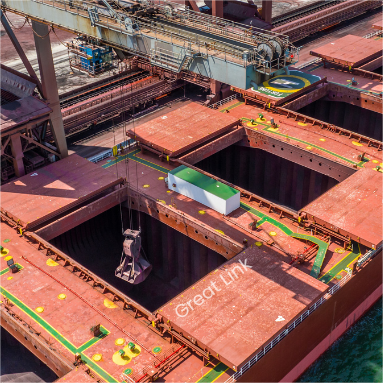How much do you know about shipping miscellaneous ships
 2024-03-13
2024-03-13
 151
151
In international transportation, in addition to the common Container carriers, there is also a kind of ships specializing in transporting bulk bulk cargo-bulk cargo ships.
Bulk groceries refer to goods that are not bandaged, boxed, packed in bags or barrels, including machinery and equipment, various materials, vehicles and ships, raw materials, etc. The bulk ship refers to the ship specially used to transport these bulk cargo, such as coal, ore, timber, livestock, grain and so on.

Classification and characteristics of 01 loose miscellaneous ships
Bulk can be divided into many types according to tonnage and use. Handy Bulk refers to Bulk with a load capacity of about 20,000-50,000 tons, which has the advantages of strong adaptability, high reliability and high transportation efficiency.
Panama Bulk is mainly applicable to the navigation regulations of Panama Canal, and its deadweight is generally between 60,000 and 75,000 tons.
The Cape Bulk mainly transports iron ore. Due to the size limitation, it cannot pass through Panama Canal and Suez Canal, so it needs to bypass Cape of Good Hope or Cape Horn.
02 terms of trade for bulk and miscellaneous ships
The trade terms of bulk cargo transportation refer to the specific conditions and responsibilities agreed by both parties during the transportation of bulk cargo. Common trade terms include the following:
Liner terms (F.L.T):
Also known as berth clause or total exchange clause, it refers to the clause that the shipowner is responsible for hiring stevedores and paying for loading, unloading and stacking. The shipowner is responsible for loading and Break bulk. In case of heavy parts that need to be hoisted, the shipowner will also pay the crane fee. It is suitable for the transportation of machinery, equipment, vehicles and other goods.
F.I.O Clause (Free In & Out):
The owner is not responsible for loading and unloading, and the loading and unloading expenses shall be borne by the charterer. The owner of the ship is only responsible for receiving and delivering goods in the cabin. It is suitable for bulk groceries such as cement, chemical fertilizer and ore.
F.I.L.O clause (Free In Liner Out):
The pipe is unloaded or not loaded. The owner is only responsible for Break bulk, while the charterer is responsible for loading in Loading port. It is suitable for transportation of steel and other groceries.
L.I.F.O clause (Liner In Free Out):
Pipe loading and unloading. The shipowner is only responsible for loading, and the Break bulk expenses are borne by the charterer. Less used.
F.I.O.S.T Clause (Free In & Out, Stowed, Trimmed):
Regardless of loading, unloading and cabin leveling fees. The shipowner is not responsible for all costs of loading and unloading, including hiring stevedores and related costs, which shall be borne by the charterer. It is suitable for transporting large goods, such as machinery and equipment, large materials, etc.
Generally speaking, bulk ships are an indispensable part of marine transportation. With their unique advantages and functions, they provide important support for International and logistics transportation, and make positive contributions to the economic development of all countries in the world.























